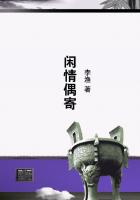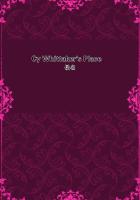THE lawyer consented to take proceedings on be-half of Ivan Mironov, not so much for the sake of the fee, as because he believed the peasant, and was revolted by the wrong done to him.
Both parties appeared in the court when the case was tried, and the yard-porter Vassily was summoned as witness. They repeated in the court all they had said before to the police officials.
Ivan Mironov again called to his aid the name of the Divinity, and reminded the shopkeeper of the hour of death. Eugene Mihailovich, although quite aware of his wickedness, and the risks he was running, despite the rebukes of his conscience, could not now change his testimony, and went on calmly to deny all the allegations made against him.
The yard-porter Vassily had received another ten roubles from his master, and, quite unper-turbed, asserted with a smile that he did not know anything about Ivan Mironov. And when he was called upon to take the oath, he overcame his inner qualms, and repeated with assumed ease the terms of the oath, read to him by the old priest appointed to the court. By the holy Cross and the Gospel, he swore that he spoke the whole truth.
The case was decided against Ivan Mironov, who was sentenced to pay five roubles for expenses.
This sum Eugene Mihailovich generously paid for him. Before dismissing Ivan Mironov, the judge severely admonished him, saying he ought to take care in the future not to accuse respectable people, and that he also ought to be thankful that he was not forced to pay the costs, and that he had escaped a prosecution for slander, for which he would have been condemned to three months' im-prisonment.
"I offer my humble thanks," said Ivan Mi-ronov; and, shaking his head, left the court with a heavy sigh.
The whole thing seemed to have ended well for Eugene Mihailovich and the yard-porter Vassily.
But only in appearance. Something had hap-pened which was not noticed by any one, but which was much more important than all that had been exposed to view.
Vassily had left his village and settled in town over two years ago. As time went on he sent less and less money to his father, and he did not ask his wife, who remained at home, to join him.
He was in no need of her; he could in town have as many wives as he wished, and much better ones too than that clumsy, village-bred woman. Vas-sily, with each recurring year, became more and more familiar with the ways of the town people, forgetting the conventions of a country life.
There everything was so vulgar, so grey, so poor and untidy. Here, in town, all seemed on the contrary so refined, nice, clean, and rich; so or-derly too. And he became more and more con-vinced that people in the country live just like wild beasts, having no idea of what life is, and that only life in town is real. He read books written by clever writers, and went to the perform-ances in the Peoples' Palace. In the country, people would not see such wonders even in dreams.
In the country old men say: "Obey the law, and live with your wife; work; don't eat too much; don't care for finery," while here, in town, all the clever and learned people--those, of course, who know what in reality the law is--only pur-sue their own pleasures. And they are the bet-ter for it.
Previous to the incident of the forged coupon, Vassily could not actually believe that rich people lived without any moral law. But after that, still more after having perjured himself, and not being the worse for it in spite of his fears--on the contrary, he had gained ten roubles out of it --Vassily became firmly convinced that no moral laws whatever exist, and that the only thing to do is to pursue one's own interests and pleasures.
This he now made his rule in life. He accord-ingly got as much profit as he could out of pur-chasing goods for lodgers. But this did not pay all his expenses. Then he took to stealing, when-ever chance offered--money and all sorts of val-uables. One day he stole a purse full of money from Eugene Mihailovich, but was found out.
Eugene Mihailovich did not hand him over to the police, but dismissed him on the spot.
Vassily had no wish whatever to return home to his village, and remained in Moscow with his sweetheart, looking out for a new job. He got one as yard-porter at a grocer's, but with only small wages. The next day after he had entered that service he was caught stealing bags. The grocer did not call in the police, but gave him a good thrashing and turned him out. After that he could not find work. The money he had left was soon gone; he had to sell all his clothes and went about nearly in rags. His sweetheart left him. But notwithstanding, he kept up his high spirits, and when the spring came he started to walk home.















